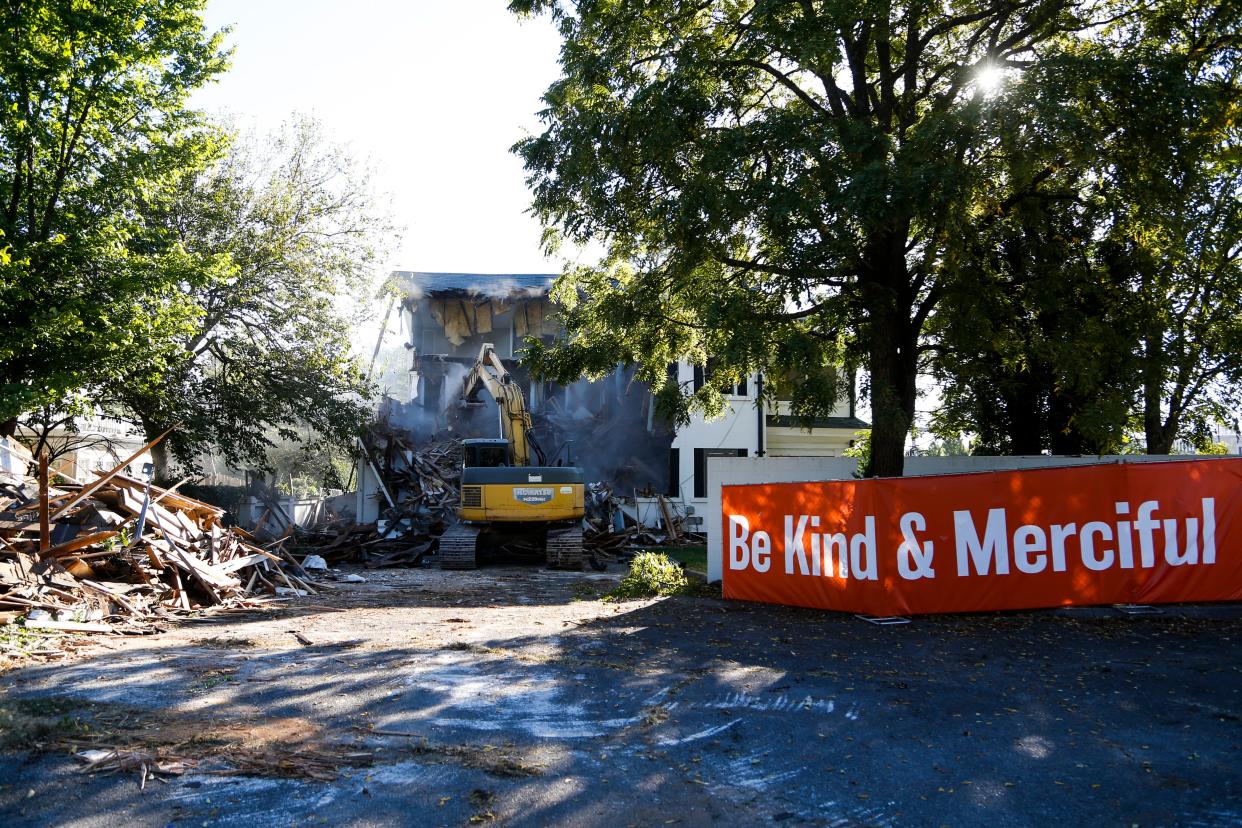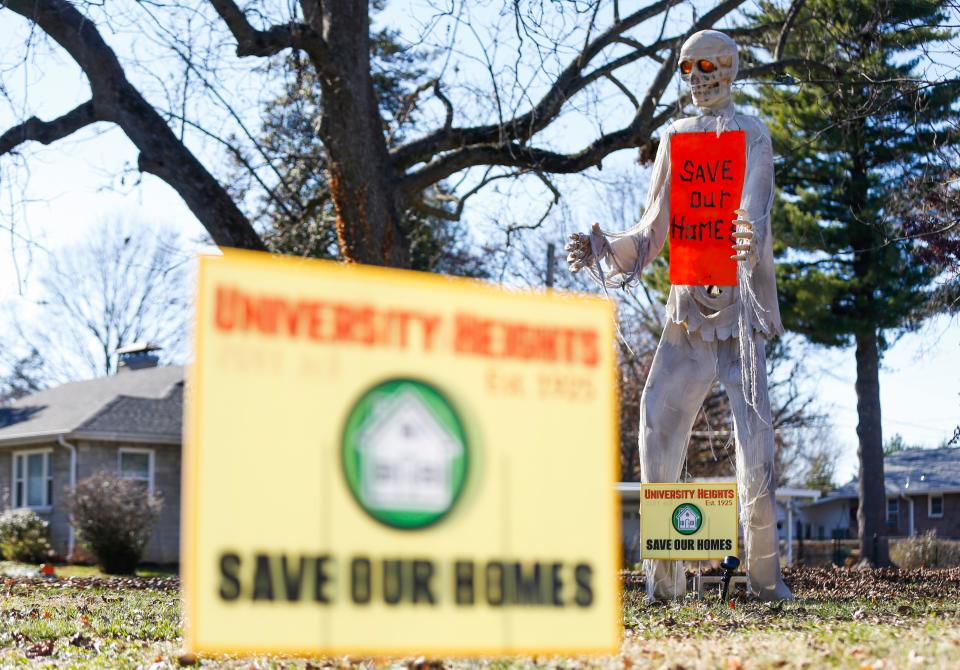Be Kind & Merciful asks judge to dismiss University Heights lawsuit in first hearing

In the latest episode of the ongoing University Heights development saga, developers with Be Kind & Merciful LLC argued a judge should dismiss a lawsuit brought by neighbors seeking to enforce deed restrictions limiting the property to residential use.
Thursday morning's arguments about whether the case should be dismissed represented the first hearing in the case, filed last year, which could determine whether the city has the ability to rezone the last residential corner at the intersection of of Sunshine Street and National Avenue.
Dubbed "The Heights," the proposed commercial development on the northwest corner would include four to six floors of restaurants, retail, office space, and executive lofts.
The project has been a lightning rod for controversy from the start. Before construction can begin, developer Ralph Duda and his partners at BK&M need city approval to rezone the lots from residential to commercial. Plaintiffs in the lawsuit hope to stop Duda before he can get that far by enforcing 100-year-old deed restrictions they argue prevent the lots from being used for commercial purposes.
Filed in December, the lawsuit lists a dozen plaintiffs, all of whom are University Heights residents, who object to the proposed mixed-use development.
The deed restrictions in question date to the original development of the University Heights neighborhood in the 1920s and include a "restriction on any building constructed thereon other than a private residence" as well as "setback requirements from the front property line."

Argument over timing of lawsuit, rezoning application
BK&M filed a motion to dismiss the lawsuit last year. After the neighborhood plaintiffs filed their response, Judge Michael J. Cordonnier heard arguments over a dismissal of the case Thursday morning.
Lawyers for BK&M argued that the case could not yet be adjudicated because the city has not taken action on Duda's rezoning application, and that the deed restrictions themselves are unreasonable.
Neighborhood residents filed the lawsuit after BK&M's applied to the city to rezone the properties. BK&M lawyer Bryan D. Fisher argued the application itself is not sufficient cause for the plaintiffs to file suit.
Rather, BK&M claims the neighbors should have waited for the city to take action. The motion to dismiss argues the neighbors' claims rest on "contingent events that may not occur as planned or may not occur at all."
Lawyers for the plaintiffs, meanwhile, argued that city action is not needed to bring suit. They alleged before the judge that the rezoning application is a "direct repudiation" of the restrictive covenant.
"The repudiation is not just the filing but what's in it ...," plaintiff lawyer Laura Greene said — pointing to the commercial rezoning request.
"There are no businesses in the University Heights area. There should not be," she said at the hearing.
"BK&M repudiated the Deed Restrictions when it filed an Application for a Zoning Map Amendment to rezone Developer’s Lots from single family residential to a General Retail District," reads the plaintiff's response to the motion to dismiss.
More:BK&M responds to University Heights lawsuit, asks court to dismiss case
"If BK&M was not repudiating the Deed Restrictions, it would have no need to apply to rezone the relevant property. Nothing in Missouri law requires Plaintiffs to wait until BK&M has rezoned, constructed, and occupied a commercial or multi-family building on the lots before seeking relief."
How long can restrictions be enforced?
Fisher also argued the 100-year-old covenants are too old to be enforced.
"The purported restrictive covenant is unenforceable as a matter of law because it is unlimited in time, almost a 100 years old, and therefore unenforceable," reads the motion to dismiss.
Fisher cited case law pointing to other instances where deed restrictions were voided because they were too old and without a time restriction.
"A restriction that lasts forever is unreasonable," Fisher said.
In response to such arguments, Judge Cordonnier asked when, according to BK&M, the deed restriction became unenforceable. Without pointing to a specific date, Fisher noted that the more than hundred-year timespan alleged by the plaintiffs would be unreasonable.
More:Citing deed restrictions, University Heights residents file suit to block development
Cordonnier suggested that a jury or judge in a trial might be able to determine whether that time frame for the deed restrictions would be reasonable. Asked by the judge, Greene confirmed the plaintiffs believe such a finder-of-fact could determine the reasonableness of the restrictions in question.
In her argument, Greene said there is "nothing" in Missouri law that would require the court to not "enforce the restrictions just because they are a hundred years old."
"BK&M acknowledges the existence of restrictive covenants in each of the relevant deeds. BK&M also appears to agree with the meaning of the restriction but questions its effectiveness. As the parties agree the restriction exists and its meaning is not in doubt, the Court must strictly construe the restriction and cannot disregard it," reads the plaintiff's response to the motion to dismiss.
After arguments, the judge said he needed time to consider his ruling regarding the motion to dismiss the neighbors' lawsuit. Though BK&M requested rezoning from the city, the request has not yet appeared before Springfield's Planning and Zoning Commission and has been postponed several times.
This article originally appeared on Springfield News-Leader: Be Kind & Merciful asks court to dismiss University Heights lawsuit

